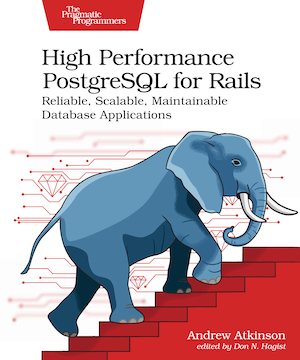- PostgreSQL Events I’ve Attended
- Attendees and their jobs and roles
- Types of companies
- Why go?
- In-person and virtual events
- Vendor events
- Calls for proposals
- PostgreSQL conferences on my radar
- PostgreSQL User Groups
- Non-PostgreSQL conferences on my radar
- Post-Event Reflections
- Wrap Up
This post is my contribution to the PGSQL Phriday #014 blog post series. Here’s the invitation:
I invite you to share your PostgreSQL Events experiences in your dedicated blog post. Whether you’re a seasoned attendee, a speaker, a trainer, a sponsor, an organizer, or a first-timer, your unique perspective contributes to the canvas of the PostgreSQL community.
Since I didn’t have a lot of time for this one, I decided to make a list of the events I’ve either attended myself, or have on my radar. I hoped others might find the list useful or interesting.
PostgreSQL Events I’ve Attended
I’ve attended three official PostgreSQL events, as well as PostgreSQL sessions at AWS re:Invent 2022 and PostgreSQL User Groups (virtually).
Here are links to those events, and blog posts I wrote about them:
- PGConf NYC 2021 (See: PGConf NYC 2021 Conference)
- AWS re:Invent 2022 (See: AWS re:Invent Day 1)
- PgDay Chicago 2023 (See: PGDay Chicago 2023 Conference)
- PGConf NYC 2023 (See: PGConf NYC 2023 Recap 🐘)
For Upcoming PostgreSQL events, check out: Upcoming Events
Attendees and their jobs and roles
Prior to attending PostgreSQL events, I wondered what the backgrounds were for people that attend. Do they all work as DBAs?
From my experience in conversations and observations, attendees tend to work as:
- DBAs
- Database engineers
- Developer relations, developer advocates, community advocates
- Engineers that work on database Products
- Backend engineers for product or services companies, that use PostgreSQL, likely at a higher scale, or with a large fleet of instances
Types of companies
Which companies are represented at these events?
- Big companies and cloud providers: AWS, Microsoft, Fujitsu, Google, Crunchy Data
- Timescale, YugabyteDB
- Startup companies with database or commercial extension products like: Tembo, Neon, Hydra
- Database services and products: DBTune, OtterTune, Redgate Software
- Companies that offer expert consulting and products: EDB, PGX
Why go?
If you’re considering attending an event, what are some benefits you might get?
- Learn how you can better use PostgreSQL in your job
- Expand your knowledge of companies and products in the PostgreSQL ecosystem
- Network with folks in the industry at these companies, or who work in the types of roles listed above
- Learn about internals of PostgreSQL and database systems
- Learn how you could contribute to PostgreSQL
In-person and virtual events
PostgreSQL events are a mix of in-person and virtual events.
- Can’t beat in-person events for high bandwidth in-person networking
- Can’t beat virtual events for accessibility and location independence. Check out events like: Citus Con
Vendor events
PostgreSQL companies offer lots of events throughout the year. Here are some:
- Neon developer days
- Planet Scale events: Sharding/MySQL Vitess Webinar
- pganalyze webinars
Calls for proposals
Try submitting a proposal to a conference! It’s a good learning experience regardless of acceptance.
- Conferences love to bring in first-time presenters
- Presentations are a great way to showcase your work
- Preparing for presentations can help deepen your knowledge and skills, by being forced to organize the information for educational purposes.
PostgreSQL conferences on my radar
- PgDay Chicago
- SCALE 21x LA, CA
- PgDay Paris
- PostgreSQL Conference Europe
- PGCon 2024
- Postgres Conference 2024
PostgreSQL User Groups
Here are some of the PostgreSQL User Group events I’ve been involved with or would like to be in the future:
- SF Pug
- pgCMH, Columbus Ohio PUG
- Seattle Postgres (Organizing team: Jeremy S.)
- Kansas City Postgres User Group (Organizing team: Elizabeth C.)
- Chicago PostgreSQL Meetup Group (Organizing team: Henrietta D.)
Non-PostgreSQL conferences on my radar
As a Ruby on Rails and backend web application developer, there are many non-PostgreSQL conferences on my radar.
Here’s a sampling of some of them:
- RenderATL
- RailsConf (in 2024 it be in Detroit)
- RubyConf US (recently happened in San Diego)
- Rails World (recently in Amsterdam, in 2024 it will be held in Toronto)
- Sin City Ruby 2024: Held in Las Vegas. I’ll be presenting!
Post-Event Reflections
One section of the PGSQL Invitation asked whether folks had post-event reflections or specific rituals.
I have a couple after I attend events:
- I take notes during the event, which aren’t organized. Afterwards, I read them and organize them, possibly into a blog post. This helps me gather more context and organize the information.
- I try to connect with attendees I met in person on social media and LinkedIn shortly after the event, or even during the event. I’ll send a reminder about how we met or what we spoke about, since attendees might be meeting a lot of people.
- I’ll try and find some topics I want to learn more about. Recently I did that for
pg_stat_iofollowing PGConf NYC.
Wrap Up
PostgreSQL events have generally been well run, and have provided opportunities to learn, network, and grow as an engineer.
Thanks!

